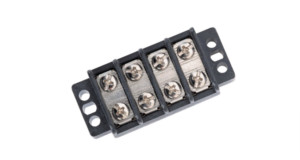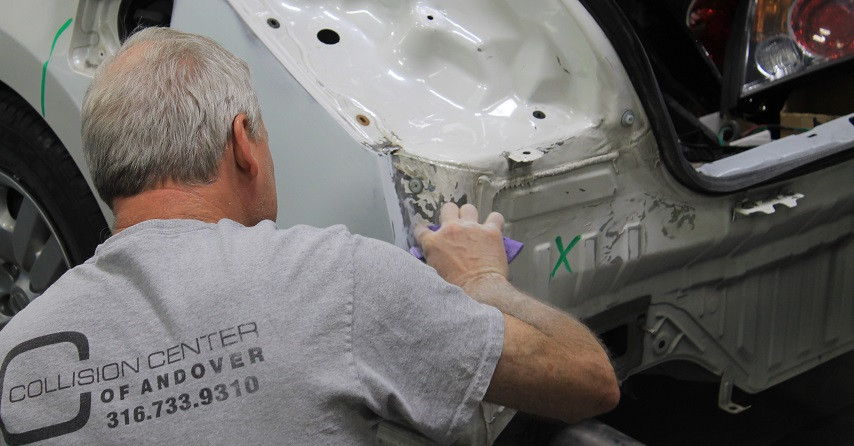How Much Does It Cost to Fix a Fuse in Your Car?

Fixing a fuse in your car involves various cost factors, but CARDIAGTECH.NET can equip you with the tools and knowledge to handle it efficiently. Let’s explore the expenses and ways to save money while ensuring your car’s electrical system is safe and functional. Addressing a blown fuse promptly prevents further electrical issues, maintaining your vehicle’s reliability and performance.
1. What’s the Typical Cost to Replace a Car Fuse?
The typical cost to replace a car fuse ranges from a few dollars for the fuse itself to around $20-$100 or more if you involve a mechanic. The fuse itself might cost only $1 to $5, but labor can significantly increase the price. According to a 2023 report by RepairPal, the average cost for a mechanic to diagnose and replace a fuse is between $75 and $150, primarily due to labor costs. The cost can fluctuate depending on your vehicle’s make and model and the complexity of the electrical system. Replacing a fuse yourself can be very cost-effective if you have basic knowledge and the right tools.
1.1. Breaking Down the Costs
- Fuse Cost: Typically, a standard blade fuse costs between $1 and $5. Mini fuses and specialized fuses may cost slightly more.
- Labor Costs: If you decide to take your car to a mechanic, labor costs can range from $75 to $150, covering diagnostics and replacement.
- Diagnostic Fees: Some mechanics may charge an additional diagnostic fee, especially if the cause of the blown fuse isn’t immediately apparent. This can add an extra $50 to $100 to the bill.
1.2. Factors Influencing the Price
Several factors can influence the overall cost of fixing a fuse in your car:
- Type of Fuse: Different types of fuses (e.g., blade, cartridge, slow-blow) vary in price.
- Location of Fuse: Fuses located in hard-to-reach areas can increase labor costs due to the extra time required for replacement.
- Vehicle Make and Model: High-end or luxury vehicles may have more complex electrical systems, leading to higher labor charges.
- Shop Rates: Labor rates vary from shop to shop. Dealerships typically charge more than independent repair shops.
- Diagnostic Time: If the underlying issue causing the fuse to blow is not immediately clear, additional diagnostic time will increase the cost.
 Car Fuse
Car Fuse
An array of Bussmann ATM mini fuses, an essential component for automotive electrical protection and maintenance.
2. What are the Key Factors Affecting Fuse Replacement Costs?
The key factors affecting fuse replacement costs include the type of fuse needed, labor costs, vehicle make and model, and the difficulty of the replacement. More intricate electrical systems may require specialized knowledge, increasing labor costs. These factors collectively determine the final expense of fixing a fuse.
2.1. Fuse Types and Their Costs
- Standard Blade Fuses: These are the most common type and are generally inexpensive, ranging from $1 to $3 each.
- Mini Fuses: Slightly smaller than standard blade fuses, these usually cost around $2 to $4 each.
- Cartridge Fuses: Often used for high-current applications, these can range from $3 to $10 each.
- Slow-Blow Fuses: Designed to withstand temporary surges, these fuses are slightly more expensive, typically costing $4 to $8 each.
- Specialty Fuses: For certain vehicle systems, specialty fuses may be required, costing anywhere from $5 to $20 or more.
2.2. Labor Costs Explained
Labor costs can vary significantly based on the mechanic’s hourly rate and the time required to diagnose and replace the fuse. According to a 2022 survey by the National Automobile Dealers Association (NADA), the average hourly labor rate at dealerships is around $120, while independent shops average about $90. The complexity of the electrical system and the fuse’s location can impact the time needed, with some replacements taking as little as 15 minutes and others requiring an hour or more.
2.3. Vehicle Make and Model Influence
The make and model of your vehicle play a significant role in the cost of fuse replacement. Luxury vehicles or those with advanced electrical systems may require specialized knowledge and tools, increasing labor costs. Additionally, some vehicles use unique or hard-to-find fuses, which can be more expensive to purchase.
For example, replacing a fuse in a standard sedan might cost around $80 to $120, while the same repair in a high-end European car could range from $150 to $250 due to higher labor rates and specialized parts.
2.4. Difficulty of Replacement
The accessibility of the fuse box and the specific fuse in question can also affect the cost. Some fuse boxes are located in easily accessible areas, such as under the dashboard or in the engine compartment. However, others may be hidden or require partial disassembly of interior panels, increasing the labor time.
According to a survey of automotive technicians, fuses located in difficult-to-reach areas can add an extra 30 minutes to an hour of labor time, significantly increasing the overall cost.
3. Can You Provide a Detailed Cost Breakdown for DIY Fuse Replacement?
For a DIY fuse replacement, the cost breakdown is straightforward: it primarily involves the cost of the fuse itself, which typically ranges from $1 to $5. Additional costs may include purchasing tools like fuse pullers or needle-nose pliers if you don’t already own them, adding approximately $5 to $15. This do-it-yourself approach can save significant labor costs.
3.1. Essential Tools and Their Costs
- Fuse Puller: A small tool specifically designed for removing fuses. Cost: $3 – $7.
- Needle-Nose Pliers: Useful for gripping and removing fuses, especially in tight spaces. Cost: $5 – $15.
- Multimeter: To test the fuse and ensure it’s blown before replacement. Cost: $20 – $50.
- Screwdrivers: Depending on the fuse box location, you might need a screwdriver to access it. Cost: $5 – $20.
3.2. Step-by-Step DIY Fuse Replacement Cost Analysis
- Identify the Blown Fuse: Consult your vehicle’s owner manual to locate the fuse box and identify the fuse associated with the malfunctioning component.
- Purchase the Replacement Fuse: Buy the correct type and amperage fuse from an auto parts store like AutoZone or online. Cost: $1 – $5.
- Gather Your Tools: Ensure you have a fuse puller or needle-nose pliers, and possibly a screwdriver to access the fuse box.
- Remove the Blown Fuse: Use the fuse puller or pliers to gently remove the blown fuse.
- Install the New Fuse: Insert the new fuse into the empty slot.
- Test the Circuit: Turn on the car and test the component to ensure the new fuse has resolved the issue.
Example Scenario:
- Cost of Fuse: $3
- Cost of Fuse Puller (if needed): $5
- Total Cost: $8
3.3. Potential Savings and Benefits
By replacing the fuse yourself, you avoid labor costs, which can range from $75 to $150 at a repair shop. Additionally, you gain the satisfaction of performing the repair yourself and learn more about your vehicle’s electrical system.
CARDIAGTECH.NET offers a range of affordable tools that can help you perform this task efficiently. Investing in quality tools ensures that you can handle future fuse replacements and other minor repairs with ease.
4. What are the Potential Risks of DIY Fuse Replacement?
Potential risks of DIY fuse replacement include using the wrong amperage fuse, which can damage the electrical system, or improperly installing the fuse, leading to further issues. Incorrectly diagnosing the problem can also result in replacing a good fuse while the real issue remains unresolved. Electrical systems are complex; handling them without proper knowledge can be hazardous.
4.1. Common Mistakes in DIY Fuse Replacement
- Using the Wrong Amperage Fuse: Installing a fuse with a higher amperage rating can overload the circuit and cause damage to the wiring or components. A lower amperage fuse may blow prematurely.
- Incorrect Fuse Type: Using the wrong type of fuse (e.g., a standard blade fuse instead of a slow-blow fuse) can affect the circuit’s performance and potentially cause damage.
- Improper Installation: Not fully seating the fuse in the slot can lead to poor contact and circuit failure.
- Ignoring the Underlying Issue: Fuses blow for a reason. Simply replacing the fuse without addressing the underlying problem can lead to repeated failures and potential damage.
4.2. Safety Precautions
- Turn Off the Ignition: Always turn off the ignition and remove the key before working on the electrical system.
- Consult the Owner’s Manual: Refer to your vehicle’s owner manual to identify the correct fuse type and amperage.
- Use the Right Tools: Use a fuse puller or needle-nose pliers to avoid damaging the fuse box or the fuses themselves.
- Inspect the Fuse Box: Check for any signs of damage or corrosion in the fuse box before replacing the fuse.
- Test the Circuit: After replacing the fuse, test the circuit to ensure it is functioning correctly.
4.3. Potential Consequences of Errors
- Electrical Damage: Using the wrong fuse or improperly installing it can damage the wiring, components, or even the vehicle’s computer system.
- Fire Hazard: Overloading a circuit with a higher amperage fuse can create a fire hazard.
- Repeated Fuse Failure: If the underlying issue is not addressed, the new fuse will likely blow again, indicating a more significant problem.
CARDIAGTECH.NET emphasizes the importance of using the correct tools and following safety guidelines to avoid these risks. If you’re unsure about any step, consult a professional mechanic.
5. How Does Vehicle Warranty Affect Fuse Replacement Costs?
If your vehicle is under warranty, fuse replacement costs may be covered if the fuse blew due to a manufacturing defect. However, if the fuse blew due to external factors like a short circuit caused by aftermarket accessories or user error, the warranty might not cover the repair. Always check your warranty terms and conditions for specific coverage details.
5.1. Understanding Warranty Coverage
- Basic Warranty: Also known as a bumper-to-bumper warranty, this typically covers defects in materials or workmanship. If a fuse blows due to a manufacturing defect, it should be covered under this warranty.
- Powertrain Warranty: This covers the engine, transmission, and related components. It typically does not cover fuse replacements unless they are directly related to a covered powertrain issue.
- Extended Warranty: An extended warranty may offer more comprehensive coverage, including fuse replacements, depending on the terms of the agreement.
5.2. Situations Where Warranty Might Not Apply
- Aftermarket Accessories: If the fuse blew due to the installation of aftermarket accessories (e.g., a new stereo system), the warranty might be voided for that particular circuit.
- User Error: If the fuse blew due to user error, such as improperly installing electrical components, the warranty might not cover the repair.
- External Factors: Damage caused by external factors like accidents, floods, or vandalism is typically not covered under warranty.
- Wear and Tear: Normal wear and tear items, such as fuses that blow due to age, are generally not covered under warranty.
5.3. How to Claim Warranty for Fuse Replacement
- Review Your Warranty: Check the terms and conditions of your vehicle’s warranty to understand the coverage details.
- Contact the Dealership: Schedule an appointment with the dealership’s service department.
- Provide Documentation: Bring your warranty documentation and any relevant information about the issue.
- Explain the Problem: Clearly explain the circumstances surrounding the blown fuse and why you believe it should be covered under warranty.
- Follow the Dealership’s Instructions: Follow the dealership’s instructions and allow them to diagnose the issue.
CARDIAGTECH.NET advises carefully reviewing your warranty agreement and consulting with your dealership to determine if fuse replacement is covered.
6. What are the Long-Term Costs of Ignoring a Blown Fuse?
Ignoring a blown fuse can lead to significant long-term costs, including damage to electrical components, potential fire hazards, and overall reduced vehicle performance. Addressing the issue promptly prevents further damage and ensures the vehicle’s safety and reliability. Neglecting a blown fuse can result in more expensive repairs down the road.
6.1. Potential Damage to Electrical Components
- Overloading Other Circuits: When one fuse blows, other circuits may become overloaded, leading to additional fuse failures and potential damage to electrical components.
- Component Failure: Without the protection of a fuse, electrical components are vulnerable to voltage spikes and surges, which can cause them to fail prematurely.
- Wiring Damage: Overloads and shorts can damage the wiring harness, leading to costly repairs.
6.2. Fire Hazards
- Overheating: A blown fuse indicates a problem in the circuit. Ignoring it can lead to overheating, which can melt insulation and potentially cause a fire.
- Short Circuits: Unprotected circuits are susceptible to short circuits, which can ignite flammable materials in the vehicle.
6.3. Reduced Vehicle Performance
- Malfunctioning Systems: A blown fuse can disable critical systems like the headlights, brake lights, or anti-lock braking system (ABS), compromising safety and performance.
- Decreased Fuel Efficiency: Electrical problems can affect engine performance and fuel efficiency, leading to increased operating costs.
- Overall Vehicle Reliability: Neglecting electrical issues can decrease the overall reliability of the vehicle, leading to more frequent breakdowns and repairs.
6.4. Real-World Examples
- A study by the National Fire Protection Association (NFPA) found that electrical failures or malfunctions were a factor in approximately 18% of vehicle fires.
- According to a report by the AAA, neglecting vehicle maintenance can lead to an average of $792 in additional repair costs per year.
CARDIAGTECH.NET emphasizes the importance of addressing blown fuses promptly to avoid these long-term costs and ensure the safety and reliability of your vehicle.
7. When Should You Consult a Professional for Fuse Replacement?
Consult a professional for fuse replacement if you’re uncomfortable working with electrical systems, if the fuse blows repeatedly, or if you suspect a more significant underlying issue. A professional can diagnose the root cause of the problem and ensure the repair is done safely and correctly. Recurring blown fuses often indicate deeper electrical issues that require expert attention.
7.1. Signs You Need Professional Help
- Repeated Fuse Failures: If a fuse blows repeatedly after replacement, it indicates a more significant electrical problem that needs diagnosis.
- Unfamiliarity with Electrical Systems: If you are not comfortable working with electrical systems or unsure about any step of the replacement process, seek professional help.
- Complex Electrical Issues: If you suspect a complex electrical issue, such as a short circuit or wiring damage, a professional has the tools and expertise to diagnose and repair it.
- Lack of Tools: If you do not have the necessary tools, such as a multimeter or fuse puller, it is best to consult a professional.
- Warranty Concerns: If your vehicle is under warranty, it is often best to have the repair done by the dealership to ensure the warranty remains valid.
7.2. Benefits of Professional Service
- Accurate Diagnosis: Professionals have the tools and expertise to accurately diagnose the underlying cause of the blown fuse.
- Safe Repair: Professionals follow safety protocols to avoid electrical damage or injury.
- Quality Parts: Professionals use high-quality replacement fuses and components.
- Warranty Protection: Professional repairs are often backed by a warranty, providing peace of mind.
7.3. How to Find a Reliable Mechanic
- Ask for Recommendations: Ask friends, family, or colleagues for recommendations.
- Check Online Reviews: Read online reviews on sites like Yelp, Google, and the Better Business Bureau.
- Verify Credentials: Ensure the mechanic is certified by the National Institute for Automotive Service Excellence (ASE).
- Get an Estimate: Get a written estimate before authorizing any work.
- Ask Questions: Ask the mechanic about their experience and qualifications.
CARDIAGTECH.NET recommends seeking professional help when in doubt to ensure the safety and proper functioning of your vehicle’s electrical system.
8. How Can CARDIAGTECH.NET Help with Your Car Fuse Needs?
CARDIAGTECH.NET can assist with your car fuse needs by offering a range of high-quality automotive tools and diagnostic equipment. We provide the tools necessary for both DIY fuse replacements and professional diagnostics, ensuring you have the right equipment to handle any electrical repair efficiently. Our tools empower you to maintain your vehicle’s electrical system with confidence.
8.1. Our Range of Automotive Tools
- Multimeters: Essential for testing fuses and diagnosing electrical issues. Our multimeters are accurate, reliable, and easy to use.
- Fuse Pullers: Designed for safely and easily removing fuses. Made from durable materials, our fuse pullers ensure you can replace fuses without damaging the fuse box.
- Diagnostic Scanners: Advanced tools for diagnosing complex electrical problems. Our diagnostic scanners provide detailed information about your vehicle’s electrical system, helping you identify the root cause of fuse failures.
8.2. Benefits of Choosing CARDIAGTECH.NET
- High-Quality Products: We offer only high-quality automotive tools from trusted brands.
- Competitive Prices: Our tools are competitively priced, providing excellent value for your money.
- Expert Support: Our team of experts is available to answer your questions and provide technical support.
- Convenient Online Shopping: Our website is easy to navigate, allowing you to quickly find the tools you need.
- Fast Shipping: We offer fast shipping to get your tools to you as quickly as possible.
8.3. Customer Success Stories
- John, a DIY enthusiast, says: “I purchased a multimeter from CARDIAGTECH.NET, and it has been a lifesaver. I was able to diagnose and fix a blown fuse myself, saving me a lot of money.”
- Maria, a professional mechanic, says: “The diagnostic scanner I bought from CARDIAGTECH.NET has significantly improved my efficiency. It helps me quickly identify electrical problems and provide accurate repairs.”
CARDIAGTECH.NET is committed to providing you with the tools and support you need to maintain your vehicle’s electrical system. Contact us today to learn more about our products and services.
 Fuse Box
Fuse Box
A detailed view of a Bussmann double-row barrier terminal block, an organized and secure solution for automotive electrical connections.
9. What Are Some Tips for Saving Money on Fuse Replacements?
To save money on fuse replacements, start by learning to replace fuses yourself using affordable tools from CARDIAGTECH.NET. Purchase fuses in bulk to reduce the per-unit cost, and always diagnose the underlying issue to prevent recurring problems. Regular maintenance and careful use of electrical components can also extend fuse life. DIY maintenance and preventative measures can lead to significant savings.
9.1. DIY Fuse Replacement
- Learn the Basics: Educate yourself on the basics of fuse replacement by consulting your vehicle’s owner manual and watching online tutorials.
- Invest in Basic Tools: Purchase a fuse puller and a multimeter from CARDIAGTECH.NET to handle fuse replacements yourself.
- Follow Safety Precautions: Always follow safety precautions to avoid electrical damage or injury.
9.2. Purchase Fuses in Bulk
- Buy Fuse Kits: Purchase fuse kits containing a variety of fuse types and amperages to have replacements on hand.
- Take Advantage of Discounts: Look for discounts and promotions on fuses at auto parts stores and online retailers.
9.3. Diagnose the Underlying Issue
- Identify the Root Cause: Determine why the fuse blew in the first place to prevent recurring problems.
- Check for Shorts and Overloads: Use a multimeter to check for shorts and overloads in the circuit.
9.4. Regular Maintenance
- Inspect Electrical Components: Regularly inspect electrical components for signs of damage or wear.
- Avoid Overloading Circuits: Avoid overloading circuits by using the correct wattage bulbs and accessories.
- Keep Connections Clean: Keep electrical connections clean and free of corrosion.
9.5. Shop Around for Quotes
- Get Multiple Estimates: If you decide to have a professional replace the fuse, get estimates from multiple mechanics.
- Compare Prices: Compare prices and services to find the best deal.
CARDIAGTECH.NET is your partner in saving money on fuse replacements. Our high-quality tools and expert support can help you handle fuse replacements yourself and maintain your vehicle’s electrical system efficiently.
10. What Are the Latest Innovations in Automotive Fuse Technology?
The latest innovations in automotive fuse technology include smart fuses with built-in diagnostics, solid-state fuses that offer faster response times and greater reliability, and adaptive fuses that can adjust their current rating based on the load. These advancements enhance the safety and efficiency of vehicle electrical systems. Advanced fuse technology offers improved performance and protection.
10.1. Smart Fuses with Built-In Diagnostics
- Real-Time Monitoring: Smart fuses can monitor current flow, voltage, and temperature in real-time.
- Fault Detection: They can detect faults such as overloads, short circuits, and ground faults.
- Remote Monitoring: Some smart fuses can transmit data wirelessly to a central monitoring system.
10.2. Solid-State Fuses
- Faster Response Times: Solid-state fuses offer significantly faster response times compared to traditional fuses, protecting electrical components from damage.
- Greater Reliability: They are more reliable and durable than traditional fuses, with a longer lifespan.
- Resettable: Some solid-state fuses are resettable, eliminating the need for replacement.
10.3. Adaptive Fuses
- Adjustable Current Rating: Adaptive fuses can adjust their current rating based on the load, providing optimal protection for electrical components.
- Improved Efficiency: They can improve the efficiency of electrical systems by reducing energy waste.
10.4. Benefits of Advanced Fuse Technology
- Enhanced Safety: Advanced fuse technology enhances the safety of vehicle electrical systems by providing better protection against overloads and short circuits.
- Improved Reliability: It improves the reliability of electrical systems by reducing the risk of fuse failures.
- Reduced Maintenance Costs: It reduces maintenance costs by eliminating the need for frequent fuse replacements.
CARDIAGTECH.NET stays up-to-date with the latest innovations in automotive fuse technology to provide you with the best tools and equipment for maintaining your vehicle’s electrical system.
Take Action Now:
Experiencing electrical issues with your car? Don’t let a blown fuse turn into a costly repair. Contact CARDIAGTECH.NET today at +1 (641) 206-8880 for expert guidance and premium automotive tools. Our team is ready to assist you with your fuse replacement needs and provide solutions tailored to your vehicle. Visit our website CARDIAGTECH.NET or stop by our location at 276 Reock St, City of Orange, NJ 07050, United States, and let us help you keep your car running smoothly.
FAQ: Common Questions About Car Fuse Replacement
Here are some frequently asked questions about car fuse replacement:
1. How do I know if a fuse is blown?
A blown fuse typically has a broken filament inside the clear plastic housing. You can also use a multimeter to test for continuity.
2. Can I replace a fuse with a higher amperage?
No, always use a fuse with the same amperage rating as the original. Using a higher amperage fuse can damage the electrical system.
3. Where is the fuse box located?
The fuse box is typically located under the dashboard, in the engine compartment, or in the trunk. Consult your vehicle’s owner manual for the exact location.
4. What tools do I need to replace a fuse?
You will need a fuse puller or needle-nose pliers, and possibly a screwdriver to access the fuse box.
5. How much does it cost to have a mechanic replace a fuse?
The cost can range from $75 to $150, including labor and diagnostics.
6. Is it safe to replace a fuse myself?
Yes, if you follow safety precautions and use the correct tools and fuse.
7. What causes a fuse to blow?
Fuses blow due to overloads, short circuits, or ground faults in the electrical system.
8. Can I drive my car with a blown fuse?
It depends on which circuit the fuse protects. If it’s a critical system like the headlights or brake lights, it’s not safe to drive.
9. How often should I replace my car fuses?
Fuses only need to be replaced when they blow. There is no scheduled replacement interval.
10. What is a slow-blow fuse?
A slow-blow fuse is designed to withstand temporary surges without blowing, making it suitable for circuits with high inrush currents.




